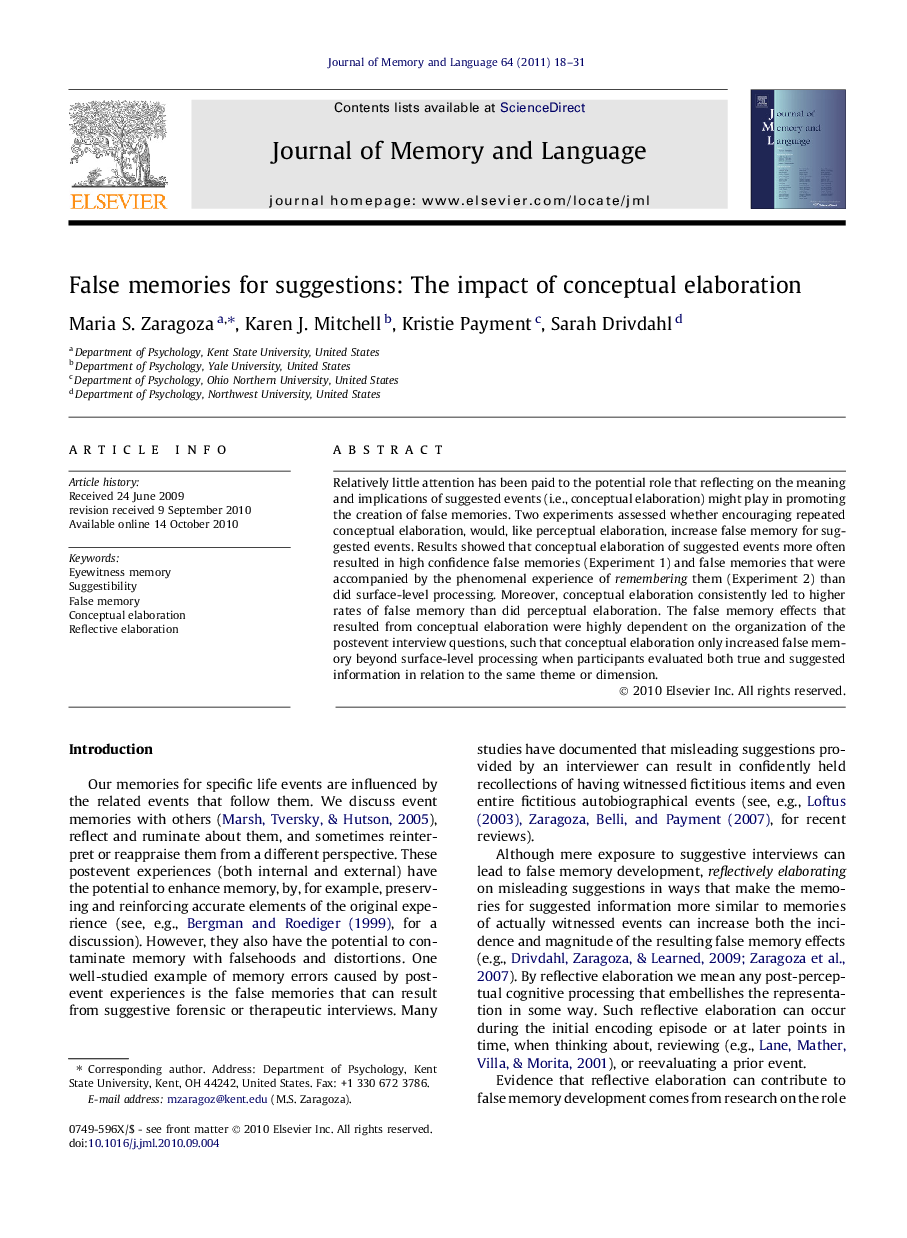| Article ID | Journal | Published Year | Pages | File Type |
|---|---|---|---|---|
| 932142 | Journal of Memory and Language | 2011 | 14 Pages |
Relatively little attention has been paid to the potential role that reflecting on the meaning and implications of suggested events (i.e., conceptual elaboration) might play in promoting the creation of false memories. Two experiments assessed whether encouraging repeated conceptual elaboration, would, like perceptual elaboration, increase false memory for suggested events. Results showed that conceptual elaboration of suggested events more often resulted in high confidence false memories (Experiment 1) and false memories that were accompanied by the phenomenal experience of remembering them (Experiment 2) than did surface-level processing. Moreover, conceptual elaboration consistently led to higher rates of false memory than did perceptual elaboration. The false memory effects that resulted from conceptual elaboration were highly dependent on the organization of the postevent interview questions, such that conceptual elaboration only increased false memory beyond surface-level processing when participants evaluated both true and suggested information in relation to the same theme or dimension.
